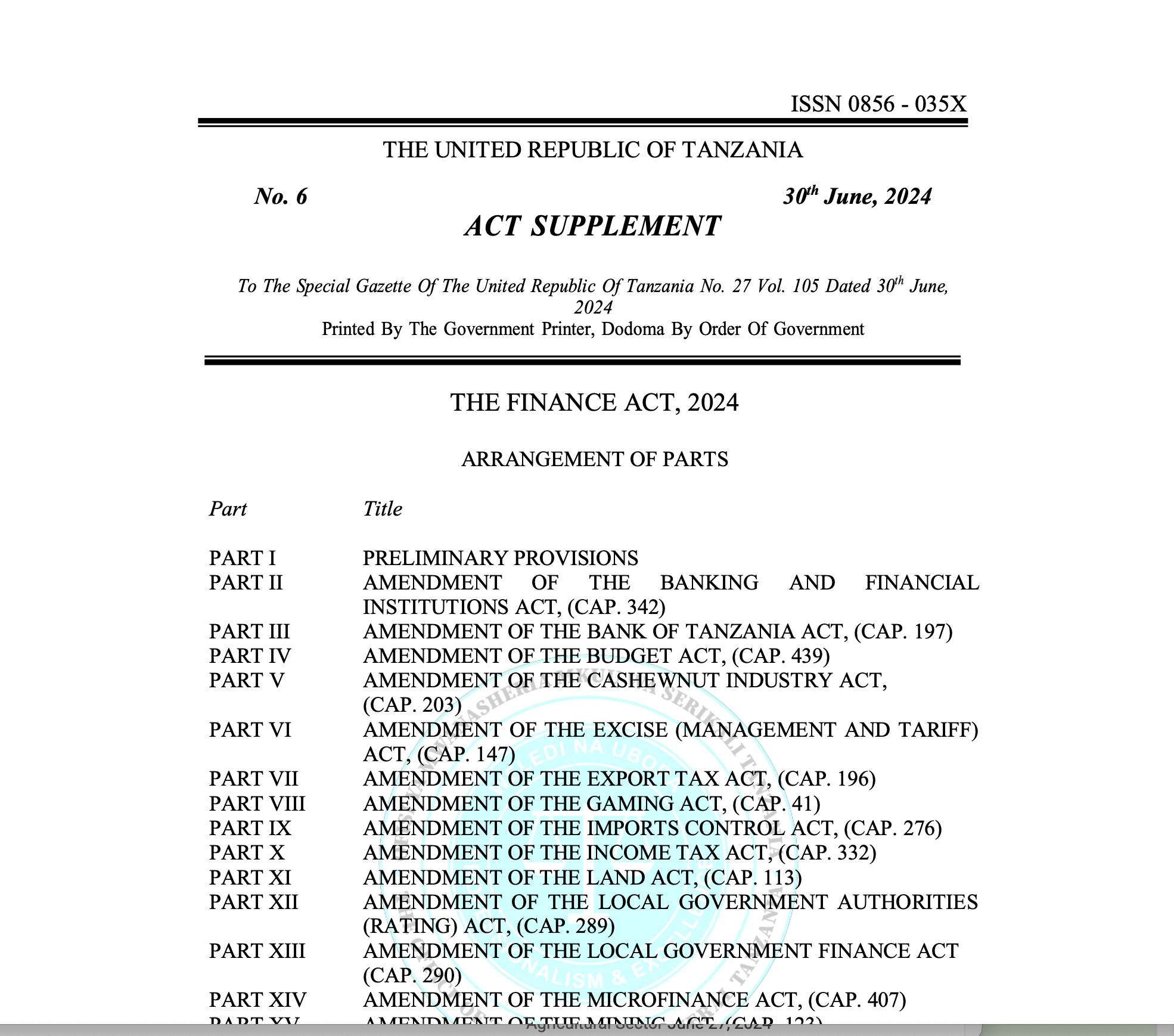Kilimokwanza.org Team
Tanzania’s Finance Act 2024 introduces significant changes to the country’s financial landscape. Here are ten key points to understand:
- Industrial Development Levy:
- What it is: A new levy on imported goods for home consumption in Mainland Tanzania.
- Exemptions: Goods originating from East African Community (EAC) Partner States that meet the EAC Rules of Origin.
- Goal: To bolster local industries and reduce reliance on imports.
- Impact: This may lead to higher consumer prices in the short term.
- Taxation of Digital Assets:
- What it is: Digital assets are now recognized as taxable entities under the Income Tax Act.
- Why it matters: This aligns Tanzania with global digital economy tax trends.
- Challenges: Valuation and reporting of digital assets may be complex.
- Centralized Sugar Importation:
- What it is: The National Food Reserve Agency (NFRA) is now the sole importer of sugar for domestic consumption.
- Goal: To stabilize the sugar market, ensure consistent supply, and address shortages and price fluctuations.
- Stricter Cargo Regulations:
- What it is: New regulations mandate that cargo consolidators adhere to customs and other relevant laws during deconsolidation.
- Goal: To improve transparency and compliance in the importation process.
- Support for the Cashew Industry:
- What it is: All export levies collected on cashews will be remitted to the Cashewnut Board for the next five years.
- Goal: To enhance the development and sustainability of the cashew sector.
- Plant Health Inspection Fees:
- What it is: New fees and charges for inspection services on imported and exported plant products.
- Goal: To enhance the safety and health of the agricultural sector and ensure adequate funding for regulatory compliance.
- Faster Tax Dispute Resolution:
- What it is: Tax appeals must now be settled amicably within sixty days.
- Goal: To expedite the resolution of tax disputes and reduce the time and resources spent on litigation.
- Financial Incentives for Tea Processing:
- What it is: “Tea processing” is included as a beneficiary of specific tax provisions until June 30, 2027.
- Goal: To promote the tea processing industry and encourage investment in the sector.
- Loans for Local Agricultural Groups:
- What it is: Local governments can issue loans to specified agricultural groups when no other applications exist.
- Goal: To empower local agricultural groups and enhance access to financial resources.
- Export Tax on Sunflower Products:
- What it is: A 10% export tax on crude sunflower oil and sunflower seeds.
- Goal: To regulate the export market and promote the addition of domestic value to sunflower products.
- Amendment of the Vocational Education and Training Act: What it is: Provision for water supply and sanitation authorities to pay casual laborers involved in implementing water and sanitation projects. Goal: To ensure fair compensation for casual laborers and support the implementation of water and sanitation projects. Benefits: Enhances the implementation of essential projects, improves agricultural productivity through better irrigation and water management, and supports the livelihoods of casual labourers.
